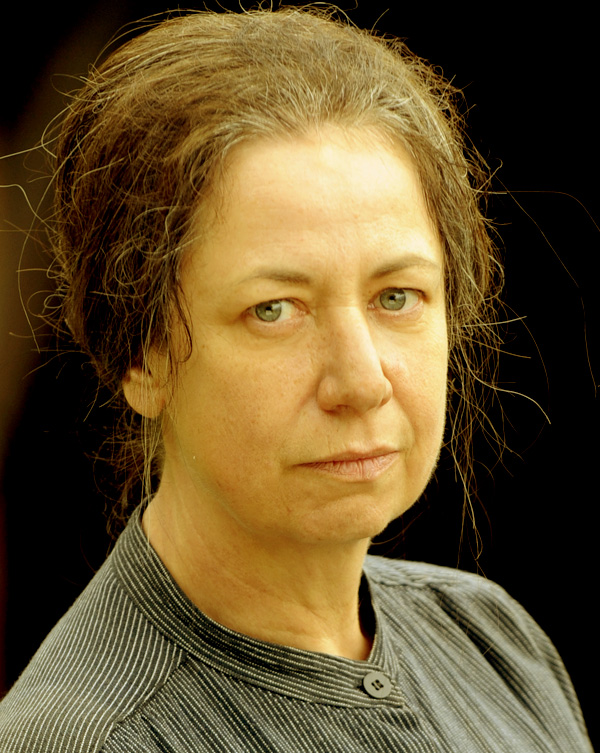Elisabeth Fritzl's story is one of the most shocking and heartbreaking tales of captivity and abuse in modern history. For over 24 years, she was held in a secret underground dungeon by her father, Josef Fritzl, in Austria. This article delves into the details of her life, the circumstances surrounding her abduction, and her remarkable journey to reclaim her freedom. Elisabeth's story not only raises questions about the human capacity for evil but also highlights the resilience of the human spirit.
In this comprehensive article, we will explore where Elisabeth Fritzl is today, the impact of her past, and the ongoing discussions about her life. We will also touch upon the legal and psychological implications of her situation. Join us as we uncover the layers of this tragic yet inspiring narrative.
This exploration is not just about where Elisabeth Fritzl is now, but also about understanding the broader implications of her experience. By examining her story, we aim to raise awareness about issues related to abuse, captivity, and the importance of mental health support for survivors.
Table of Contents
- Biography of Elisabeth Fritzl
- Early Life of Elisabeth Fritzl
- The Captivity: A Dark Chapter
- Discovery and Rescue
- Aftermath and Legal Proceedings
- Where is Elisabeth Fritzl Now?
- Psychological Impact on Survivors
- Raising Social Awareness
Biography of Elisabeth Fritzl
Elisabeth Fritzl was born on April 18, 1966, in Amstetten, Austria. She grew up in a troubled household, which may have contributed to the events that unfolded later in her life. Below is a brief overview of her personal data and biography:
| Date of Birth | April 18, 1966 |
|---|---|
| Place of Birth | Amstetten, Austria |
| Father | Josef Fritzl |
| Mother | Rosemarie Fritzl |
| Number of Children | 3 |
Early Life of Elisabeth Fritzl
Elisabeth's early life was marked by a tumultuous family environment. Her father, Josef, was known to be authoritarian and abusive. This environment of fear and control would later play a significant role in Elisabeth's life. At the age of 16, Elisabeth ran away from home, seeking independence and a better life.
The Abduction
In 1984, when Elisabeth was just 18 years old, Josef Fritzl lured her back home under the pretense of needing her help with a family matter. Instead, he drugged her and locked her in a hidden cellar beneath their home. This marked the beginning of over two decades of horror.
The Captivity: A Dark Chapter
During her captivity, Elisabeth was subjected to years of physical and emotional abuse. Josef Fritzl repeatedly raped her, leading to the birth of seven children, three of whom were raised in the cellar while the others were taken away and raised by Josef and his wife, Rosemarie, above ground.
Living Conditions
- Elisabeth and her children were kept in a cramped, dark space.
- They had limited access to food and basic hygiene facilities.
- The psychological toll of isolation and abuse was immense.
Discovery and Rescue
Elisabeth's plight came to light in April 2008, when one of her children, Kerstin, fell seriously ill. Josef Fritzl was forced to take her to a hospital, where medical staff became suspicious of the family's story. This eventually led to the authorities being involved, resulting in Elisabeth's rescue.
Aftermath and Legal Proceedings
Following her rescue, Elisabeth Fritzl faced the overwhelming task of rebuilding her life. The legal proceedings against Josef Fritzl were widely publicized, with many details of the case shocking the world.
Legal Outcomes
- Josef Fritzl was sentenced to life in prison in March 2009.
- Elisabeth and her children were provided with psychological support.
- The case sparked debates about the legal system's handling of abuse cases.
Where is Elisabeth Fritzl Now?
As of now, Elisabeth Fritzl is reportedly living a quiet life away from the public eye. After her traumatic experience, she has chosen to focus on healing and providing a stable environment for her children. However, details about her current whereabouts remain largely undisclosed to protect her privacy.
Psychological Impact on Survivors
Elisabeth's story is a poignant reminder of the lasting psychological impacts of captivity and abuse. Survivors often face challenges such as PTSD, anxiety, and difficulties reintegrating into society.
Support Systems
- Importance of mental health resources for survivors.
- Community support plays a crucial role in recovery.
- Advocacy for awareness and prevention of abuse.
Raising Social Awareness
The case of Elisabeth Fritzl has raised significant awareness about the issues of domestic abuse and the importance of supporting survivors. It has sparked discussions about the need for better protective measures and resources for those in similar situations.
Conclusion
Elisabeth Fritzl's journey from captivity to freedom is a testament to her strength and resilience. While she continues to heal from her traumatic past, her story serves as a powerful reminder of the need for societal change in addressing domestic violence and supporting survivors. We encourage readers to share this article and engage in discussions about these critical issues.
Call to Action
If you have been affected by similar issues or know someone who has, please reach out for help. Your voice matters, and together we can make a difference. Feel free to leave a comment or share your thoughts below.
Thank You for Reading!
We appreciate your interest in this important topic. Please visit our site for more articles that delve into similar issues and inspire positive change in society.




